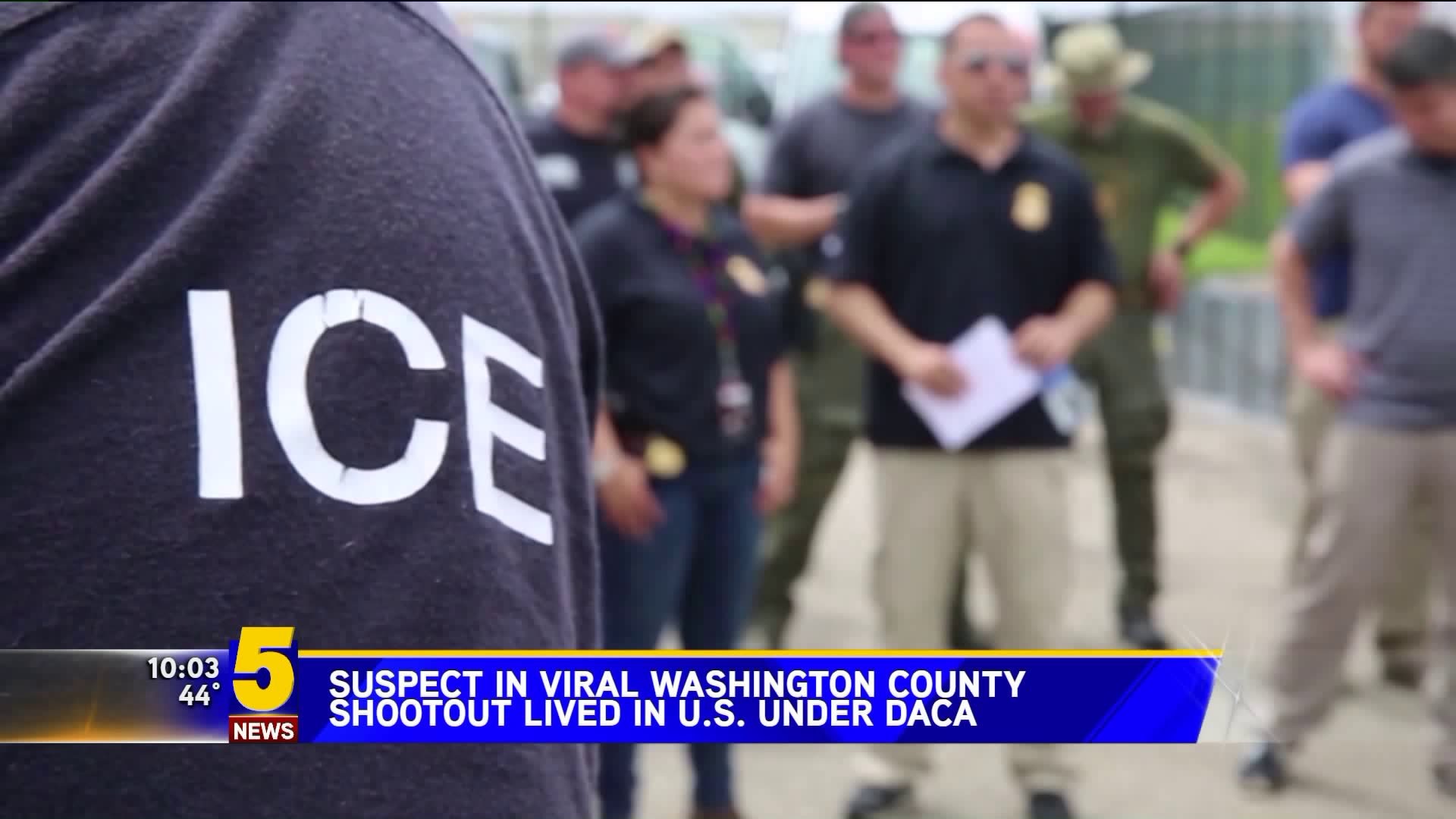FAYETTEVILLE (KFSM) — A man living illegally in Springdale pleaded not guilty to trying to kill several police officers in November 2018.
Luis Cobos-Cenobio, 29, is charged in Washington County Circuit Court with five counts of attempted capital murder, fleeing, possession of a controlled substance and possession of drug paraphernalia.


His trial is set for March 6 in Judge Mark Lindsay's courtroom. Cobos was being held Thursday (Jan. 3) at the Washington County Detention Center on a $500,000 bond.
Cobos, originally from Mexico, had been living in the United States under the Deferred Action for Childhood Arrivals program, or DACA, an Obama-era initiative that protected immigrants from deportation, according to U.S. Immigration and Customs Enforcement.
U.S. Citizenship and Immigration Services revoked his DACA status shortly after his arrest.
According to the Washington County Sheriff's Office, Cpl. Brett Thompson tried to stop Cobos on Nov. 11, 2018, near South Barrington and Steel roads in Tontitown for a traffic violation, but Cobos kept driving.
Cobos continued on Steele Road and eventually stopped. When Thompson got out of his vehicle, Cobos also stepped out of his car and began shooting, prompting Thompson to return fire.
Portions of the shootout -- which lasted 53 seconds -- were captured by a bystander and dashcam from the deputy's vehicle.
"It was by the grace of God that (Thompson) wasn't hit. But from that point on, his reaction saved his life," said Washington County Sheriff Tim Helder.
"(Thompson) reverted to his training and did exactly what he was supposed to do."
After the shooting, Cobos led the sheriff's office on a pursuit that entangled Springdale officers and Arkansas State Police. He told police he "wanted to die" after surrendering in Springdale, according to a probable cause affidavit.
Thompson and two Springdale police officers who shot at Cobos are on administrative leave, as is protocol, pending an investigation by state police.
Although Cobos was arrested in 2015 for drug possession, he didn't meet the threshold for deportation under the U.S. Department of Homeland Security's enforcement priorities in place at that time, according to a spokesman for U.S. Immigration and Customs Enforcement (ICE).
Those provisions required that a person protected by DACA could be deported if they were convicted of a felony or three misdemeanors.
President Barack Obama introduced DACA in June 2012 by executive action, giving hundreds of thousands of people who came to the country illegally as children two-year, renewable permits to live and work, according to the Associated Press.
To qualify, they needed to have arrived before their 16th birthday, been under 31 in June 2012, completed high school or served in the military, and have clean criminal records, the AP reported.
Nearly 683,000 people were enrolled at the end of January.
President Donald Trump sought to end DACA in 2017, calling the program illegal and saying Obama exceeded his authority.
Late last year, a three-judge panel of the 9th U.S. Circuit Court of Appeals unanimously kept a preliminary injunction in place against Trump’s decision to end the Deferred Action for Childhood Arrivals program, according to the AP.
Lawsuits by California and others challenging the administration’s decision continue in federal court while the injunction stands.

